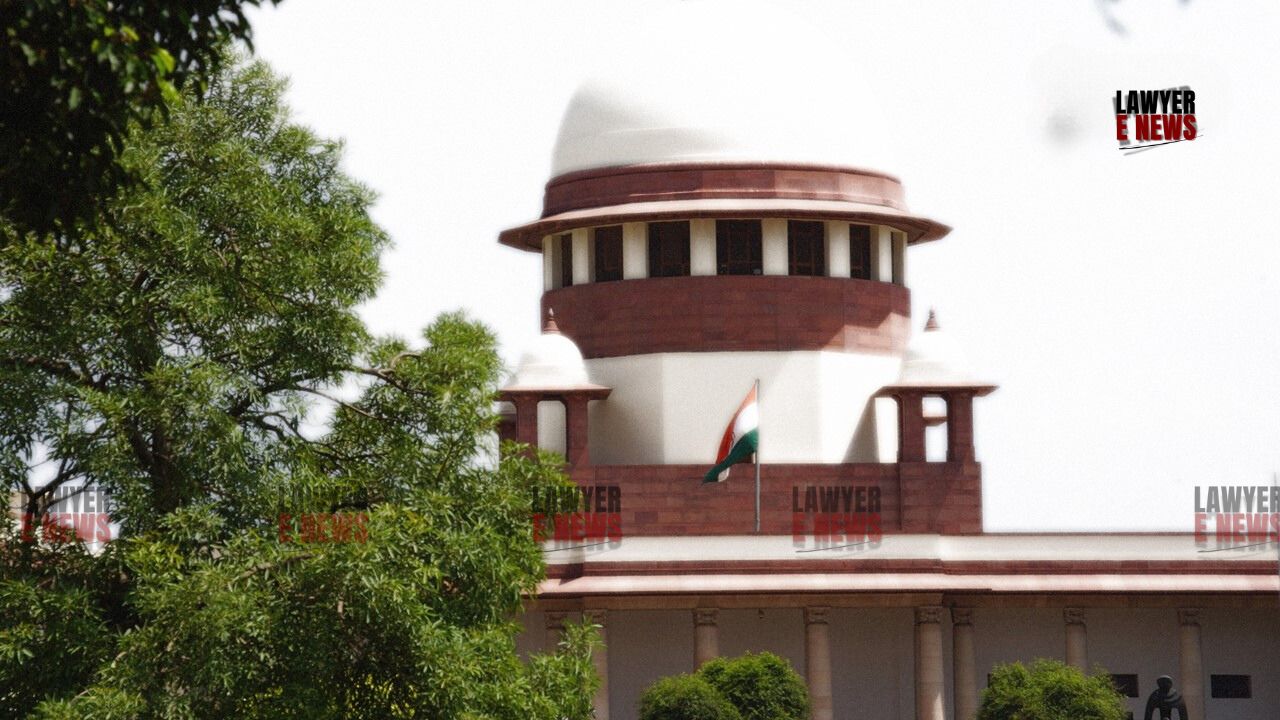-
by Admin
16 February 2026 1:47 PM



“Medical Test Is Not a Substitute for School and Birth Records Under Section 94 JJ Act”—In a detailed and legally significant ruling Supreme Court of India, upheld the declaration of juvenility and grant of bail to a murder accused, respondent no. 2, rejecting the complainant’s challenge.
A bench comprising Justice Abhay S. Oka and Justice Ujjal Bhuyan dismissed two connected criminal appeals, affirming the findings of the High Court of Allahabad and the Appellate Sessions Court that had overturned the Juvenile Justice Board’s (JJB) refusal to recognize the accused’s juvenile status.
Emphasizing strict adherence to Section 94(2) of the Juvenile Justice (Care and Protection of Children) Act, 2015, the Court held: “When valid school certificates and municipal birth records exist, the JJB has no authority to order medical testing or reject documentary evidence. Ossification test is permissible only when no such documentary proof exists.”
The Court also held that the JJB could not re-open or revise its previous declaration of the juvenile’s date of birth.
“JJB’s Medical Test Order Was Statutorily Invalid”
The case arose from a murder FIR dated 17.02.2021, under Sections 302/201/34 IPC and Sections 3/25/27 of the Arms Act, where the accused—respondent no. 2, a minor at the time per his school certificate and birth certificate—was initially denied the benefit of the JJ Act by the JJB, Meerut.
Despite possessing a high school certificate from DPS Higher Secondary School, Meerut, recording his date of birth as 08.09.2003, the JJB ignored this and ordered an ossification test, which showed the respondent’s age as “about 21 years.”
The Supreme Court decisively rejected this method, stating: “When the school certificate and municipal birth certificate were already available and on record, JJB could not have resorted to medical examination. Section 94(2) of the JJ Act mandates clear precedence of documentary proof over medical opinion.”
The Court relied on its own earlier ruling in Rishipal Singh Solanki v. State of U.P., (2022) 8 SCC 602, reiterating: “Medical opinion is not conclusive. It is only a guiding factor, and must only be used in absence of documentary evidence.”
“JJB Has No Power to Review Its Earlier Order on Age”
A striking feature of the judgment was the Supreme Court’s condemnation of the JJB for contradicting its own prior ruling. The JJB had earlier recognized the same date of birth (08.09.2003) in an earlier case under Section 307 IPC, but reversed itself in this subsequent proceeding.
The Court declared that this amounted to an impermissible review: “No power of review is traceable to the JJB under the JJ Act, 2015. Once the date of birth is accepted in an earlier proceeding, it cannot be unsettled merely because a different informant was involved in the new case.”
The Court observed that allowing such reversals would undermine legal certainty: “Permitting such conduct would defeat the scheme of the JJ Act and render juvenile protection entirely discretionary.”
“Heinous Offence by a Juvenile Aged 16+ Requires Preliminary Assessment”—Properly Followed
Despite the declaration of juvenility, the Court noted that the charge of murder (Section 302 IPC) constitutes a heinous offence under Section 2(33) of the JJ Act, 2015, and triggers Section 15, requiring a preliminary assessment by the JJB if the accused is aged between 16–18 years.
Here, the JJB conducted the mandated preliminary assessment and concluded that: “Respondent no. 2 was physically and mentally fit and mature enough to commit the offence and capable of understanding its consequences.”
Accordingly, the JJB ordered that the trial be held before the POCSO Court, as per Section 18(3).
The Court found this consistent with the law: “The JJB’s action under Section 15 was proper. This proves that declaration of juvenility does not automatically mean trial under lenient norms.”
“No Grounds to Cancel Bail After Three Years”
On the issue of bail, the Supreme Court upheld the High Court’s grant of bail dated 13.05.2022, observing that: “Gravity of offence alone is not a ground to deny bail to a juvenile in conflict with law under the JJ Act, 2015.”
The High Court found no material suggesting moral, physical, or psychological danger to the juvenile if released. Further, in the three years since his release, there was no report of misuse of liberty.
Thus, the Court held: “It would not be just or proper to cancel the bail at this stage. However, the appellant and State are free to seek cancellation if misuse is shown.”
“Shubam Sangra Case Inapplicable—Here, Documents Were Trustworthy”
The appellant had cited Union Territory of J&K v. Shubam Sangra, where medical evidence was preferred over documents. The Court distinguished that case: “In Shubam Sangra, no credible documents existed and the municipal records were falsified. In the present case, both school and municipal records are authentic and pre-date the incident.”
The Court reaffirmed its consistent position: “Where official documents exist and are credible under the Evidence Act, medical tests are inadmissible.”
Strict Compliance With JJ Act Required
The Supreme Court concluded that: “The decisions of the Additional District and Sessions Judge and the High Court declaring the respondent as a juvenile and granting bail were legally sound and in conformity with the JJ Act, 2015. There is no ground to interfere.”
Accordingly, both Criminal Appeals No. 603 of 2025 and 2569 of 2025 were dismissed, with liberty granted to seek cancellation of bail if misuse occurs.
Date of Decision: May 20, 2025
